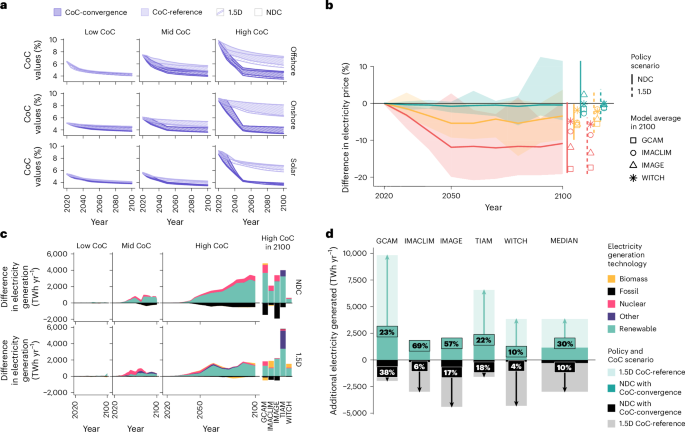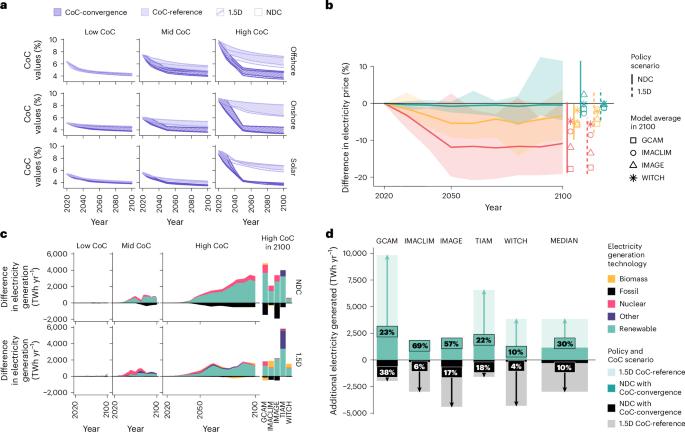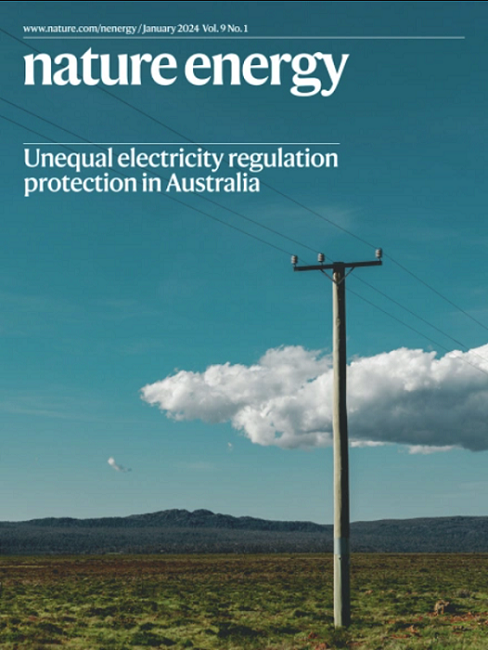降低发展中国家能源转型融资的资本成本
IF 49.7
1区 材料科学
Q1 ENERGY & FUELS
引用次数: 0
摘要
要稳定气候,就必须调动大量资金投资于低碳和零碳技术,特别是在新兴和发展中经济体。然而,各国在获得稳定且可负担的资金方面存在巨大差异。用于评估能源转型的模型没有区分地区融资成本,因此无法研究可再生能源发电的风险分担机制。在本研究中,我们将根据经验估算的、按国家和技术区分的资本成本纳入五个气候-能源-经济模型的组合中。我们量化了发展中地区承担的去碳化额外融资成本,并探讨了各国风险溢价趋同的政策。我们发现,由于发展中世界有了更多可再生的、负担得起的能源,缓解资金限制既有利于气候,也有利于公平。这凸显了公平融资对能源可用性、可负担性和可持续性的重要性,以及将金融因素纳入基于模型的评估的必要性。本文章由计算机程序翻译,如有差异,请以英文原文为准。


Reducing the cost of capital to finance the energy transition in developing countries
Climate stabilization requires the mobilization of substantial investments in low- and zero-carbon technologies, especially in emerging and developing economies. However, access to stable and affordable finance varies dramatically across countries. Models used to evaluate the energy transition do not differentiate regional financing costs and therefore cannot study risk-sharing mechanisms for renewable electricity generation. In this study, we incorporated the empirically estimated cost of capital differentiated by country and technology into an ensemble of five climate–energy–economy models. We quantified the additional financing cost of decarbonization borne by developing regions and explored policies of risk premium convergence across countries. We found that alleviating financial constraints benefits both climate and equity as a result of more renewable and affordable energy in the developing world. This highlights the importance of fair finance for energy availability, affordability and sustainability, as well as the need to include financial considerations in model-based assessments. Fair finance in the energy sector is modelled in five climate–energy–economy models. The results show that convergence costs of capital could improve energy availability, affordability and sustainability in developing countries, thereby increasing the international equity of the energy transition.
求助全文
通过发布文献求助,成功后即可免费获取论文全文。
去求助
来源期刊

Nature Energy
Energy-Energy Engineering and Power Technology
CiteScore
75.10
自引率
1.10%
发文量
193
期刊介绍:
Nature Energy is a monthly, online-only journal committed to showcasing the most impactful research on energy, covering everything from its generation and distribution to the societal implications of energy technologies and policies.
With a focus on exploring all facets of the ongoing energy discourse, Nature Energy delves into topics such as energy generation, storage, distribution, management, and the societal impacts of energy technologies and policies. Emphasizing studies that push the boundaries of knowledge and contribute to the development of next-generation solutions, the journal serves as a platform for the exchange of ideas among stakeholders at the forefront of the energy sector.
Maintaining the hallmark standards of the Nature brand, Nature Energy boasts a dedicated team of professional editors, a rigorous peer-review process, meticulous copy-editing and production, rapid publication times, and editorial independence.
In addition to original research articles, Nature Energy also publishes a range of content types, including Comments, Perspectives, Reviews, News & Views, Features, and Correspondence, covering a diverse array of disciplines relevant to the field of energy.
 求助内容:
求助内容: 应助结果提醒方式:
应助结果提醒方式:


